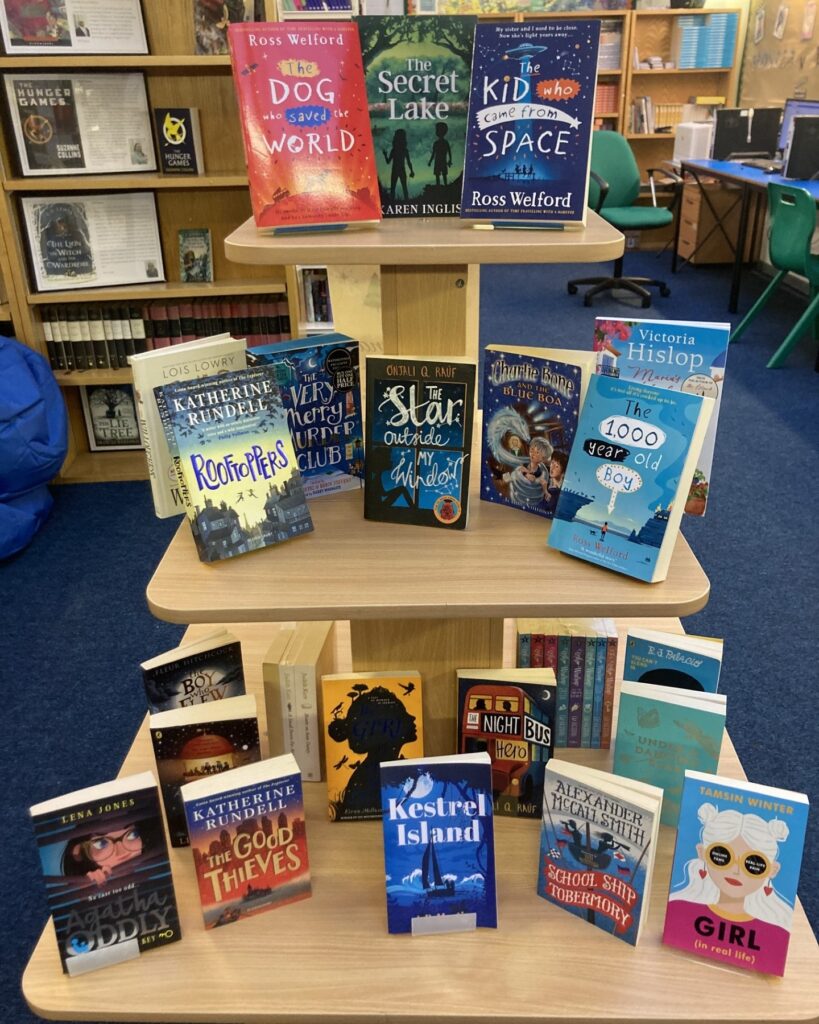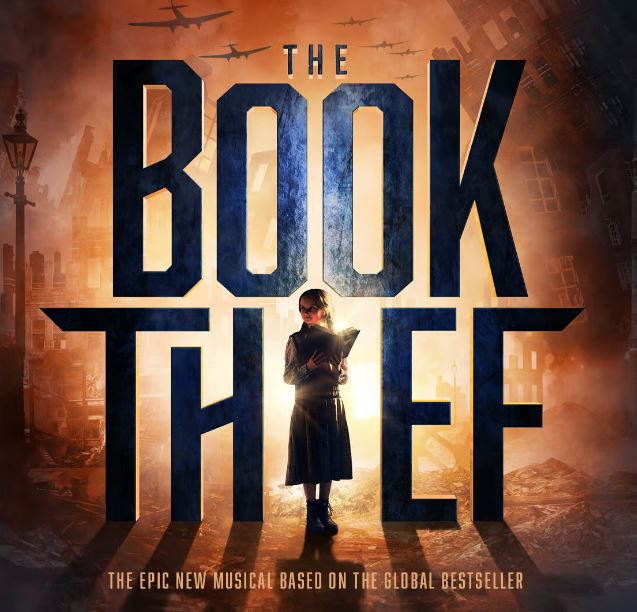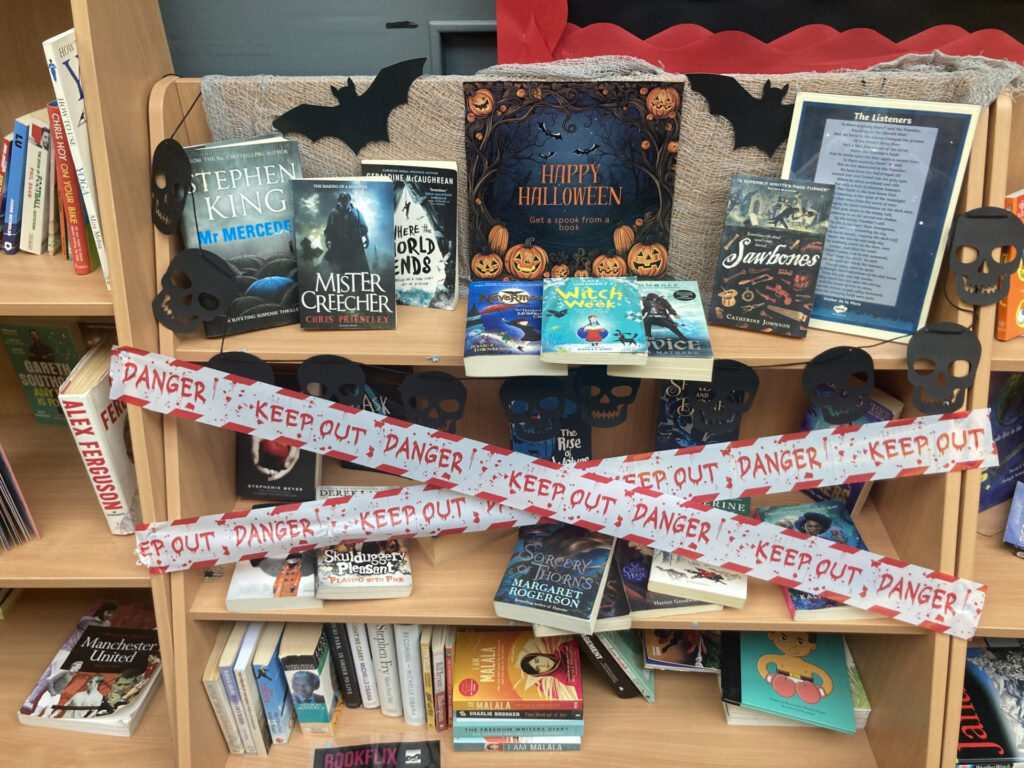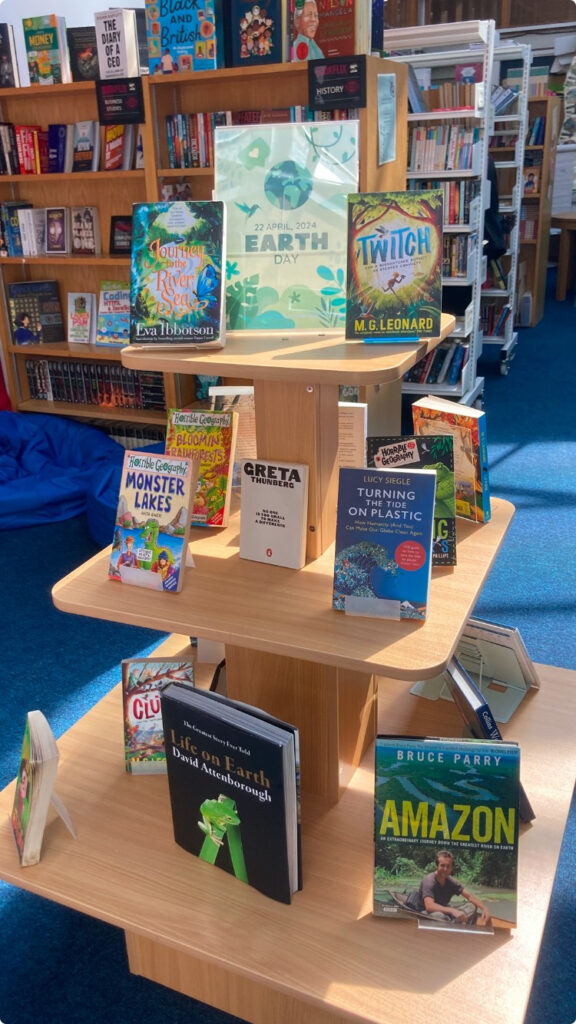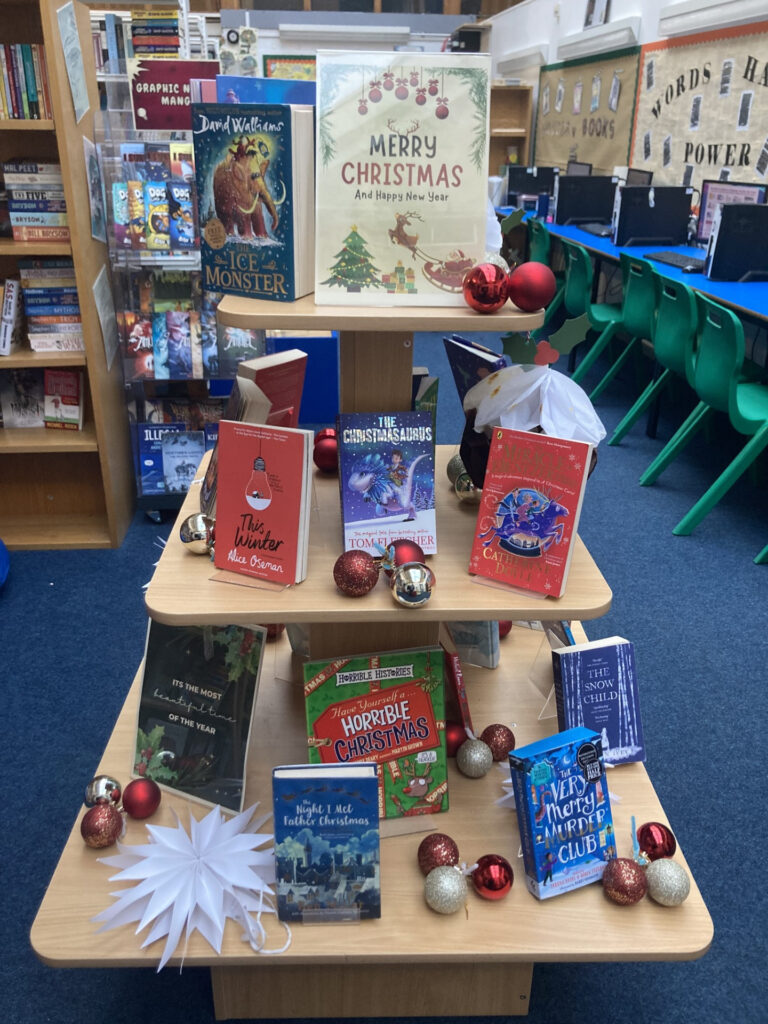Reading in Years 7 – 11
St Antony’s is a reading school
Now, more than ever, it is essential that we celebrate reading as a platform that will provide us with the leaders of the future. Your children deserve and need our support in ensuring that reading is a priority for everyone in our school.
At St. Antony’s Roman Catholic School we believe that reading is at the core of everything a child needs to ensure that they build their knowledge on a daily basis, helping them on the path to becoming the best version of themselves. It is the most crucial skill a child can have for cross-curricular success in secondary school and helps them to build the knowledge that they need to keep learning more.
The curriculum is dominated by text both by print and on screen and our learners need to be able to read effectively in order to understand, make sense of and take meaning from the wide range of texts presented to them. We also prioritise reading to support the personal development of each child in our care, as reading has been shown to improve mental health and wellbeing, as well as improving compassion and empathy for others. Our aim at St Antony’s is to develop each student’s potential to the point where they are reading at or above, their chronological age and are confident to use reading as a valuable springboard to enhance learning.
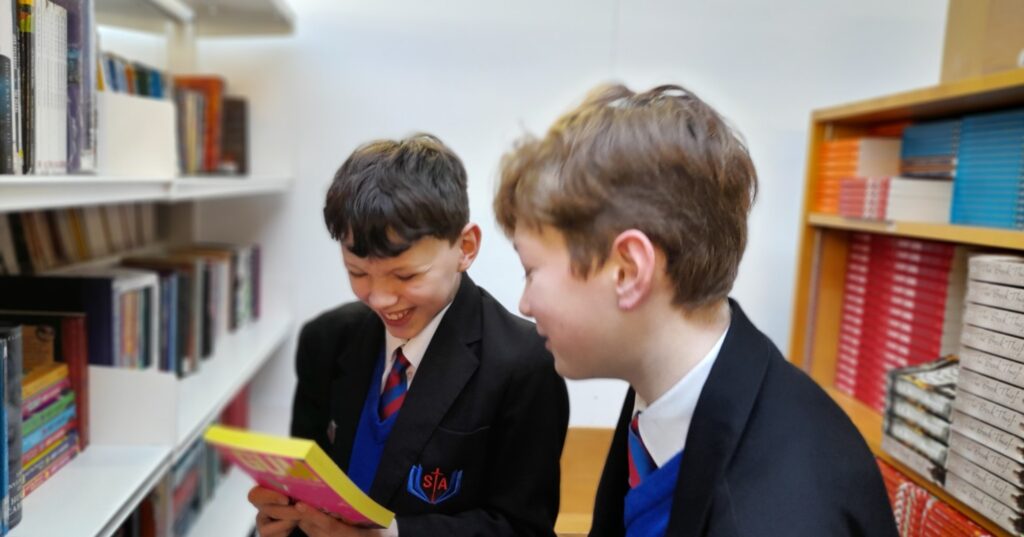
Year 7 Transition
We understand than to maintain and support children at the start of their transition to secondary school, we need to follow on from the great work done in our feeder primary schools and we aim to keep reading as an essential part of life to support the children’s academic journey. For this reason, we expect all Year 7 pupils to continue to record their reading on a weekly basis in reading diaries that are checked every Monday. In addition, we work with our KS2 colleagues through links with feeder schools and The KS2-KS3 Transition Project run with Trafford Schools.
Reading in Form
All pupils are also encouraged to read for enjoyment which will help to develop good reading skills. In Years 7-10, all pupils partake in 25 minutes of reading during form time three times a week. Year 11 have a more bespoke approach to allow for revision and focused study sessions. Each term a form will read a text using the Faster Read approach to reading, 3 sessions a week. This means that they will read a wide range of books or novels every year in form time. Pupils read together, led by their tutor as outlined in the Faster Reading methodology researched by The University of Sussex and found to increase reading ages considerably. The planned schedule is laid out below. This will change in 2024/2025 as we refine our choices and invest further in books that pupils enjoy the most.
| Form Reading Schedule | ||||
| Year 2023 2024 | Book 1 | Book 2 | Book 3 | Book 4 |
| 7 | A Monster Calls | The Lion the Witch and the Wardrobe | Quiet Power | Watership Down |
| 8 | My Sister Lives on the Mantlepiece | Ketchup Clouds | Robinson Crusoe | The Lion the Witch and the Wardrobe (‘23/24) |
| 9 | The Life of Pi | The Boy who Steals Houses | The Gilded Ones (‘23/’24) | The Book Thief |
| 10 | The Book Thief | The Gilded Ones | The Kite Runner | The Kite Runner |
| 11 | 1984 | TBC | Revision | Revision |
Reading Support in School
We are aware that not all children have the same starting point with reading. Pupils who continue to have difficulty reading have already struggled with learning to read for up to seven years. They have experienced years of falling further and further behind their peers; as a result, many struggling readers have low self-esteem and lack confidence in the classroom.
Consequently, we identify struggling readers quickly as they start St Antony’s in Year 7 and they are assessed and enrolled onto our reading programmes in order to improve their reading skills with immediate effect.
- NGRT Reading Age tests are used to identify pupils who could have difficulties with reading and this then helps to direct us to those who may need it most.
- The Ruth Miskin ‘Fresh Start’ programme identifies pupils who have gaps in their phonics knowledge and provides a structured programme of support.
- Intervention sessions are run 1-1 or as small group reading support sessions.
- The Lexia Dyslexia Programme helps to build the reading skills for those identified as in need of this specific support.
- Year 11 pupils can avail of Speed Reading intervention to support fluency.
Pupils who have effective reading skills can do the following:
- employ a range of strategies in order to access texts
- vary their reading styles to suit different purposes
- read fluently, accurately and with understanding
- read independently
- Be critical readers and make informed and appropriate choices.
Disciplinary Literacy
The approach to disciplinary literacy at St Antony’s puts an emphasis on all teachers being teachers of literacy. By identifying reading and literacy as a golden thread in our school, we are reinforcing the expectation that teachers teach new vocabulary explicitly and consistently, that they read regularly with children and that they help children to access the type of literature that supports their learning in each the different disciplines. Young readers should be challenged to read for pleasure and for learning, both fiction and non-fiction, in classrooms and in the home. Our library should be a place where pupils are directed to by all teachers, and teachers should invest time in speaking to pupils about books and reading through the Bookflix displays and any other opportunities to remind children of the power of reading.
We summarise our priorities for teaching reading and literacy in the following bullet points:
We will:
- Identify T2 (higher-level language) and T3 vocabulary (T3 is subject-specific) in topic guides
- Break down words when introducing new vocabulary (etymology and links)
- Focus on vocabulary in retrieval/homework/assessment (knowing more and remembering more)
- Identify and use ambitious reading materials
- Model proficient reading in form and in lessons
- Emphasise that vocabulary empowers, allowing pupils to articulate their learning
- Adapt a subject-specific approach
- Encourage children to read around our subjects and link reading to the Bookflix displays in our rooms
St Antony's School Library
Our school library is a bustling hub of reading, research and learning that is thriving, and we continue to add wonderful new books and resources every term. The library is open every break and lunch and all pupils are encouraged to visit, browse the shelves and borrow books! We have a team of Reading Ambassadors who help run the library and man the stationery shop, so there is no excuse for not being pen-ready in lessons! Throughout the year we host events and celebrate reading and books in a variety of ways.
Here is the new St Antony's Library website where pupils can browse books, reserve books, create wish lists, write reviews and see the latest library news.
We are all teachers of literacy
Support at Home
It is the minimum expectation at St Antony’s that children read at home as well as at school and as such children will be provided with a home reading book and in Year 7, they will also be provided with a reading record. It is expected that children read regularly to an adult and also read independently. There is an expectation that the books the children read are not only books they enjoy but also challenge them. We are building our library stock to ensure that we have a wide range of books that pupils will be challenged by, and enjoy reading.
Bookflix
Bookflix is our reading incentive and is linked to rewards through achievement points and other prizes when children read specific numbers of books. Children write a short review and achieve loyalty stamps from the library staff or reading ambassadors. The more you read, the more rewards you can get! Bookflix displays are also in every classroom, which gives teachers the opportunity to recommend books to read around each subject. Children should see which books are trending and newly added, just like the home screen on Netflix!
Reading Ambassadors
Reading Ambassadors have been appointed to ensure that pupil leadership is at the core of all reading initiatives and support. They are responsible for supporting the work done from the library, as well as leading on aspects of pupils’ reading initiatives throughout the year.
Further opportunities for reading
Urmston library has a vast wealth of books that children can borrow (as well as other local libraries):
Sale has a free book shop ‘Get Books’ where children can go and take three books at a time
https://vymaps.com/GB/Get-Free-Books-Sale-396896747388076/#google_vignette
Here is a list of recommended reads for Year 7 (this is not an exhaustive list)

